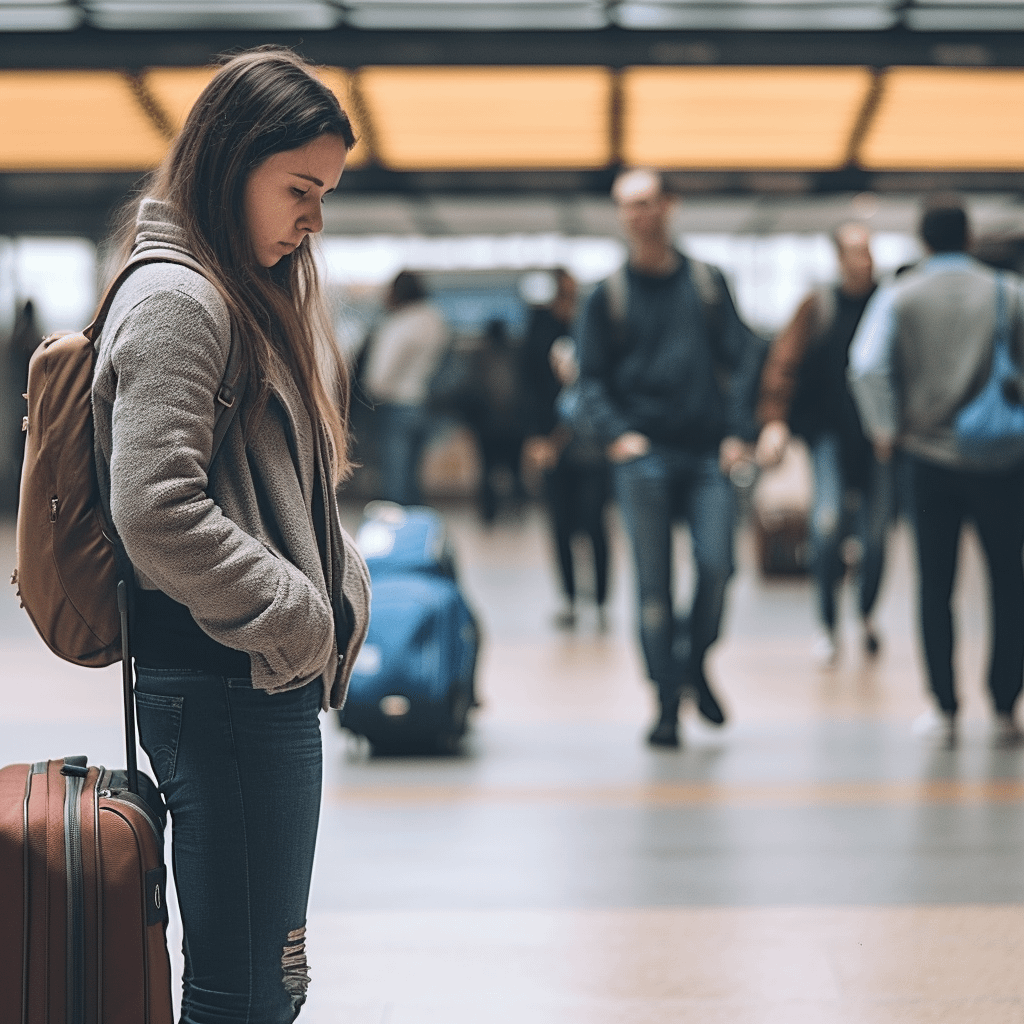If you were one of the lucky ones, you were able to fly this winter without too many disruptions, whether due to sickness, cancellations, or holiday storms. But winter travel disruptions are all too common, especially during the time of COVID-19. The rate of holiday travel disruptions and delays was worse in 2022 than in years past. Travel insurance companies may try to take advantage of the situation to avoid a massive payout for this fiscal year. If you live in Wisconsin, Illinois, or Minnesota and your travel insurance is refusing to cover the claim, there is help available.
Don’t waste your time jumping through hoops with an insurance company that’s determined to save money at your expense. Let the experienced travel insurance dispute lawyers at Wallace Law fight on your behalf, so you can move on with your life and your plans.
What Is Travel Insurance?
To get started, you need to know what kind of travel insurance you have purchased. Different kinds of policies cover different costs.
Comprehensive travel insurance plans are the most common and are designed to reimburse you should your travel be disrupted or delayed due to covered unforeseen events. These kinds of “trip insurances” are the ones most often marketed on booking platforms alongside air travel and hotel expenses.
Certain specialized travel health insurances may cover the cost of receiving healthcare or medical evacuation while traveling abroad. Finally, if you purchased a Cancel For Any Reason (CFAR) plan, these more expensive travel insurances are the least restrictive of the policies, and should cover the broadest range of reasons for a cancellation.
What Should Travel Insurance Cover?
Travel insurance usually covers events that are considered “unforeseen,” or out of your control. Importantly, many travel insurance plans included exceptions for COVID-19, and are considering the health risks of the ongoing pandemic as “predictable,” and therefore not covered. Always read the fine print when purchasing a travel insurance policy.
The following are the most common categories of covered losses through travel insurance:
- Accidental death or dismemberment: The most extreme of categories, this kind of travel insurance is usually included in travel health insurances.
- Sickness of yourself or of a family member: Sickness, with the sometimes exception of COVID-19, may be considered a covered reason to cancel or delay a trip. Situations involving coronavirus, however, may be unique. For instance, receiving a positive COVID test yourself immediately before travel may qualify you for travel insurance reimbursement. However, concerns about exposure due to travel may or may not be considered applicable. If you have questions about COVID-19-related travel insurance denials, contact an experienced travel insurance attorney. We can advise you about how to get the fullest possible amount from your claim.
- Natural disaster: Natural disasters such as hurricanes, wildfires, or tornadoes are considered unforeseen events, and are generally covered due to travel insurance.
- Airline strike: An airline strike announced after you purchased a ticket is usually a covered event.
- Inclement weather: Over 12,000 flights were canceled during December 2022 due to extreme weather conditions. While airlines are required to provide a full cash refund when a flight is canceled, the other components of your canceled or delayed trip, such as hotel costs or rental cars, may only be covered from a travel insurance claim.
- Public service, such as jury or military duty: Being called for jury duty or military service is often considered a covered event.
- Lost or stolen passport, visa, or other travel documents: When your travel documents are stolen abroad, it may cause significant delays in your connecting flights or returning home. The costs associated with these expenses may be covered through travel insurance.
- Costs associated with trip delays, such as additional or connecting flights, hotel expenses, and meal costs: If you miss your flight or connection on a cruise due to a common carrier delay, the additional expense to make up your travel may be considered covered.
- Baggage delay or loss: After a certain amount of time (traditionally anywhere from five to 12 hours), trip insurance may help you recover the cost of purchasing new clothes and other necessary items.
Why Your Travel Insurance Claim May be Denied or Underpaid by an Insurer
A travel insurance company is a third-party business, and one that’s out to protect its own bottom line. They have no interest in ensuring that you have a good experience with the airline, rental car company, or hotel that you booked your trip with. As they are often marketed via separate booking platforms, they also have a reduced incentive to fight for your continued business.
For this reason, travel insurance companies may deny or undervalue your claim in an attempt to save the company money. For limited liability claims, such as in events of delayed baggage or missed flights, they may attempt to say that not enough time has passed, or that you were somehow complicit in the mistake that made you miss your flight. They may reduce your claim amount accordingly, or refuse to pay. Most commonly, travel insurers may argue that the event that has impacted you was not technically “unforeseen,” and therefore is not covered.
Even if the cost of your delayed travel is covered by your plan, it is important to take note of other possible costs and loopholes. For instance, some activities, such as skiing, are considered dangerous by travel insurers. Because of this, accidents that occur during ski trips may be denied by travel insurers. In other cases, travel insurance may not cover the full amount of jewelry, electronics, or other expensive items if they are damaged or stolen during travel. Finally, injuries or flare-ups during travel that are connected to pre-existing conditions may be contested by travel insurers.

What to Do If Your Travel Insurance Claim Has Been Denied
A denied travel insurance claim does not necessarily mean you have no hope of recovering compensation. Missed connections, lost baggage, canceled flights and more can all add up to thousands of dollars in what should be a covered loss. The average American vacation costs just under $2,000 per week, for only one person. When traveling with a partner or family, a travel insurance company’s denial can take a significant hit to your finances.
If your travel insurance claim has been outright denied or rejected in part, there are steps you can take.
- Read over your policy: Go over the fine print of your policy, and ensure that the area of dispute is not a listed exception. If you need help, a travel insurance dispute attorney can examine the details of the situation and help inform you about what to do next.
- Keep your receipts: Keep receipts for every cost involved in your delayed or disrupted travel. The cost of a taxi or ride share service to or from the airport, of meals or accommodations from a canceled flight and more, may all be considered covered expenses. It is especially important to get receipts instead of just estimating what you paid for services. For instance, some policies only cover lost baggage costs after 12 hours of delay. Keep track of when you paid certain costs, as well as the exact amounts, in order to circumvent disputes.
- Know your rights, and your limits: You are entitled to a full cash refund in the event of a canceled flight. Unfortunately, we’ve all seen how airlines and other travel companies have attempted to take advantage of consumers during times of distress. Travel insurance companies can be no different. Know what your rights are, and also your limits. Booking a trip is often a chance to relax and unwind. When things go wrong, letting an insurance dispute attorney fight it out with the travel insurer is a shortcut to both recovering a higher payout, as well as salvaging what’s left of your travel experience.
- Contact an experienced insurance dispute attorney: When you need help with an insurance dispute, it’s best to call in the experts who handle these claims every day. A bad faith insurance lawyer can help you fight a wrongly denied claim or get more money if your settlement offer was too low.
Contact a Travel Insurance Dispute Lawyer
If you are battling with insurance to get your travel insurance claim paid, contact Wallace Law for a free consultation. We’ll review the details of your policy and advise you on whether or not the travel insurer may be in the wrong. Contact us today for a free consultation of your travel insurance dispute case.







